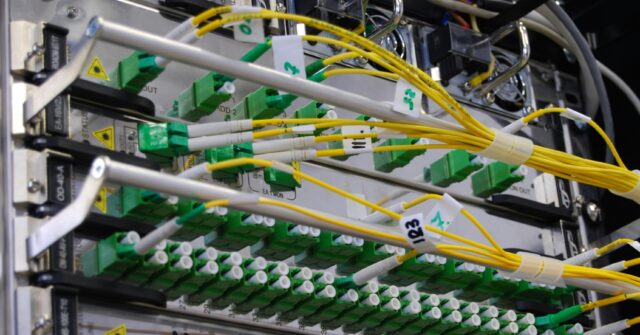In a concerning incident that has raised alarm bells across Europe, a submarine fibre optic cable connecting Sweden and Finland was cut in two locations overnight, leaving thousands of Finnish homes without internet connectivity. The breaks occurred in the suburbs of Espoo and Vihti near Helsinki. Repair teams from Global Connect, the cable’s owner, have been dispatched to address the damage; however, the circumstances surrounding the cable cuts have prompted speculation about potential sabotage attributed to Russian-backed forces, given a recent history of similar acts targeting European infrastructure. Swedish officials, including Civil Defence Minister Carl-Oskar Bohlin, have suggested that “sabotage is suspected”, although the exact details remain unclear. Finnish authorities are currently investigating, but a criminal probe has not yet been initiated, with one of the incidents potentially being linked to accidental damage caused by a construction worker using a backhoe.
Adding to the unease, Niklas Ekström from Global Connect pointed out the unusualness of experiencing two breaks in different locations simultaneously. This situation raises questions about the motivations behind such incidents, especially amid heightened tensions in Europe. Various government agencies, including those in Sweden and Norway, have been alerted in response to the damage, reflecting a serious approach to investigating what could potentially be a case of infrastructure sabotage. Such caution is not unwarranted, as European governments remain vigilant in response to recent events, including two submarine cables cut last month by a Chinese-flagged vessel—actions believed to be connected to a larger hybrid warfare strategy aimed at destabilizing European communications networks.
These incidents are indicative of a growing trend of sabotage and attacks on critical infrastructure throughout Europe. In Sweden, another incident recently occurred where a telephone exchange was deliberately damaged in Öjaby, Växjö, signifying a pattern of hostility aimed at communications systems. Reports indicated that the perpetrators had intentionally breached a high-security area, suggesting a level of premeditation beyond mere vandalism. Such targeted assaults on communication infrastructure can severely disrupt services and expose vulnerabilities within technologically reliant societies.
The severity of telecommunications sabotage has not been limited to Sweden; neighboring countries have experienced similar attacks. In France, examples include widespread disruptions in 2020, where 50,000 people lost internet access due to a series of coordinated cable cuts. Those incidents were suspected to be part of a broader campaign linked to radical left activists, seeking to disrupt technological reliance and protesting against modern technological systems. The frequency of these attacks suggests they may not merely be isolated events but rather a continuing threat to national and regional security.
Moreover, a connection has been drawn between these types of attacks and ideological movements. The perpetrators involved in several sabotage cases have openly declared their motives to challenge and dismantle technological infrastructures, specifically targeting advancements such as 5G networks. In 2021, a series of incidents in France saw sabotage culminate in widespread destruction of communication equipment, claimed by groups admitting their actions were part of an overarching resistance to what they termed the “techno-world.” This reveals an alarming trend where ideological aims intertwine with acts of destruction, heightening the potential risks facing infrastructure in various European countries.
In summary, the recent cable disruptions between Sweden and Finland underscore a larger issue of vulnerability in critical infrastructure amid geopolitical strains. While investigations are ongoing to determine the nature of these breaks—whether accidental or deliberate—the investigations point to the necessity of addressing the underlying threats posed by both regional adversarial actions and internal ideological movements. European nations are urged to enhance their cybersecurity and physical security measures to protect against this ever-evolving landscape of potential sabotage and disruption. Overall, the need for vigilance and proactive responses in maintaining the integrity of communication infrastructure cannot be overstated in an increasingly interconnected and technologically dependent world.

